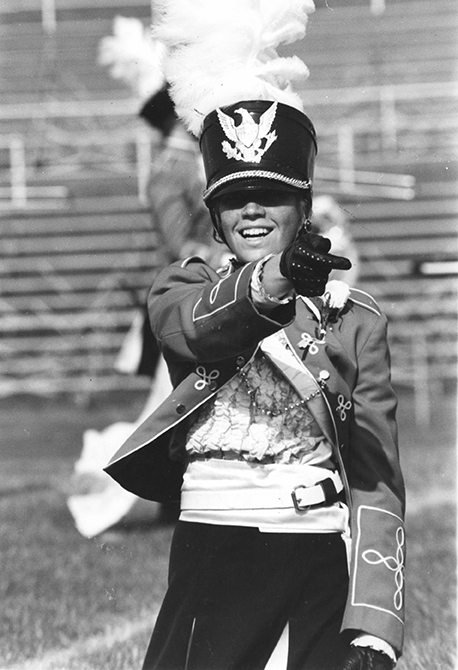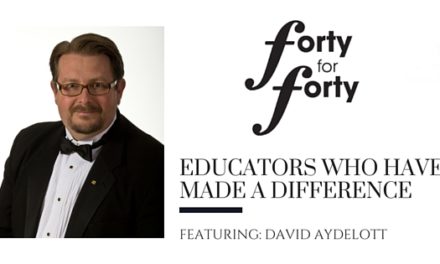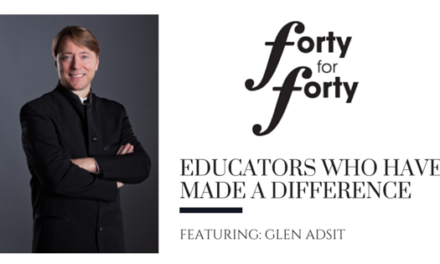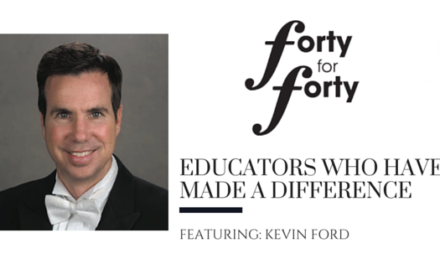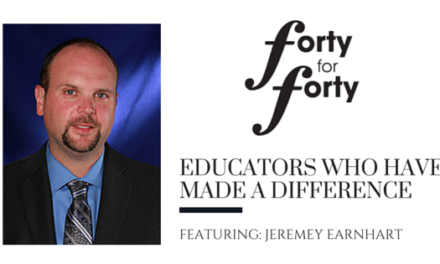In celebration of Music for All’s 40th Anniversary in 2015, we are featuring profiles of music educators who have made a difference in Music for All and in band and orchestra education. In this post we feature a band director who has been to every Summer Symposium since its existence.
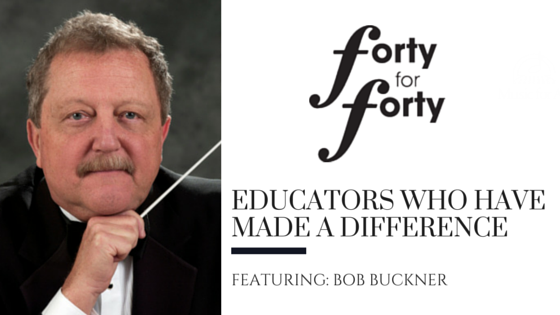
Bob Buckner is a seasoned director and educator who dedicated his life to music education for over 45 years. Beginning his teaching career while attending college in 1966, Buckner worked as a director at Sylva Webster in Sylva, North Carolina for 13 years. He then started his own band-consulting firm, United Music Enterprises, and worked with a variety of groups throughout the U.S. and Canada such as Spirit of Atlanta, Carolina Crown, and the United States Drum and Bugle Corps. In August 1988 Buckner became Director of Bands at East Tennessee State University and taught there for three years before accepting his final full-time teaching job at Western Carolina University as Director of Athletic Bands in 1991.
Since Buckner retired in 2011 he continues to stay active as a drill writer, consultant and a conductor for Mountain Winds, a community band based out at Western Carolina University. He has also worked with VanderCook College of Music teaching an online course and hopes to work with Audition U, a music recruiting company that helps prospective high school students connect with university music programs.
Buckner received his Bachelors in Music Education from Western Carolina University. In his free time he likes to hike, golf, and spend time with his grandchildren.
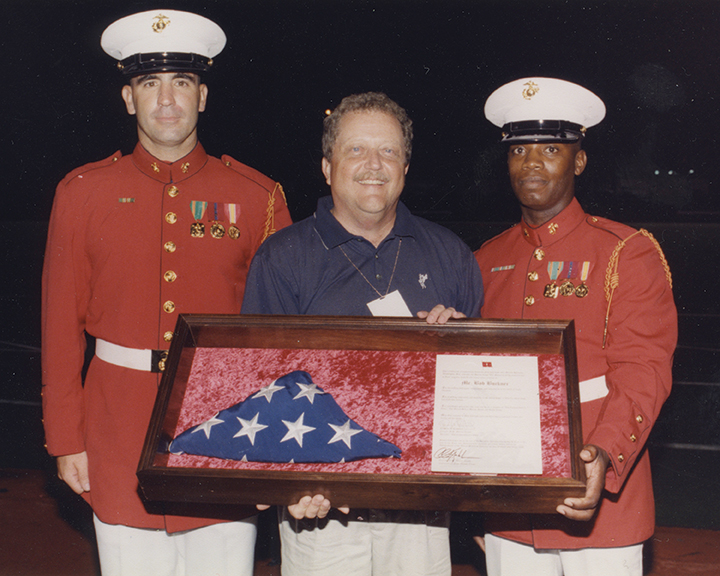
Q & A
Tell us about your participation with Music for All and Bands of America.
I knew about BOA (then MBA) long before getting involved. I saw Larry McCormick at the Midwest International Band and Orchestra Clinic, as well as other music competitions, and was continually intrigued by his cutting edge marketing and company. My first experience was when I was asked to judge a BOA Regional Competition at James Madison University in 1978. That weekend marked a monumental change for me professionally, meeting some of the men that would remain (even today) some of the largest influences in my career and life. My next contact with the organization was in the summer of 1979 at the National Championship show in Whitewater. That was my first trip to camp and I haven’t missed one since!
Since then I’ve judged many shows, led a band to become the winner of a Grand Nationals competition and attended numerous events only to be repeatedly amazed at the organization’s dedication to music making.
What are some of the highlights and memories from your experiences related to MFA/BOA?
I could honestly write a book about my experiences with Music for All but my number one highlight would have to be when I was the director of the Sylva Webster High School Golden Eagle Band when they were named Grand National Champion in June 1979.
Beyond that moment (which I would never have an opportunity to repeat), almost every Bands of America event brought me new friends and connections in addition to more knowledge about the business. I also thoroughly enjoyed judging Grand Nationals at Whitewater on several occasions, being a part of the “Director’s Marching Band,” and of course being inducted into the Bands of America Hall of Fame in 2005 alongside my dear friends Greg Bimm, Richard Crain and Gayle Crain. Recently I even had the opportunity to be the director of the Honor Band of America at the Tournament of Roses Parade in 2013.
What is one thing you’d say to a new band director who asks you “what is the one thing you wish someone had told you just starting out?”
I’d ask them why he or she wants to be a band director/teacher. Is their motivation to gain recognition for themselves or to simply go wherever they get a job and do their very best to teach children to play an instrument, learn to work as a team, and enjoy music for the remainder of their life? Many seem to think that it’s about personal achievement but it’s really about the children. It’s also about teaching children “through music,” using the subject to have a positive impact on their entire lives. If one continues to grow as a musician and surround themselves with teammates and followers who can work effectively together, everything else will fall into place.
What do you like to see Music for All focus on or accomplish in the next 40 years?
I have always dreamed that Bands of America and Music for All could do more to include bands of all levels, not just those that are elite with large budgets. The Summer Symposium addresses this, but it needs to be incorporated into the marching competitions.
I also think it would be beneficial for Music for All to create a legacy by commissioning more music and to expand partnership with interested colleges and universities to bring more of the MFA experience to other parts of the country.
